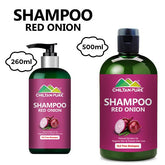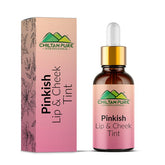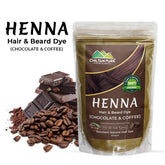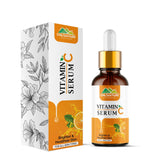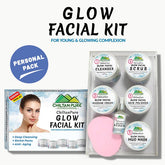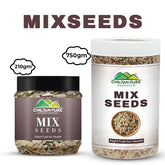Peanut Butter - Health Benefits and Nutrition - Perfect Snack for your Fitness!
What is Peanut Butter?
Peanut butter is the creamy and ground form of peanuts made after dry roasting them. About 90% of peanut butter consists of peanuts, while the rest of the 10% incorporates vegetable oil, salts, dextrose, and corn syrup to improve flavour and smoothness. Decadent and loaded with nutrients, peanut butter is consumed worldwide. It is also a substitute for milk because of its low calorie and high protein retention. People eat it with sandwiches, salads, biscuits, and many other foods. Peanut butter is a firm favourite among adults and children alike. Although tasty, many people wonder about the health benefits of peanut butter. Peanuts and peanut butter contain nutrients that may boost a person's heart health and improve blood sugar levels. How people use peanut butter in their diet can help them lose weight or put on pounds during weight training or bodybuilding. However, peanut butter is high in calories and fat, so people should enjoy it in moderation.Nutritional benefits of peanut butter
Peanut butter contains many proteins, vitamins, and minerals like magnesium, potassium, and zinc. Peanut butter has a lot of calories, saturated fat, and sodium.Health benefits of peanut butter
Eating peanut butter in moderation and as part of an overall healthful diet may provide the following benefits:-
Loss of weight
-
Improving heart health
 ChiltanPure Peanut butter contains many nutrients that can improve heart health. A high intake of nuts may be associated with a lower risk of death from heart disease or other causes. Peanuts, in particular, are a low-cost way for some people to improve their heart health.
ChiltanPure Peanut butter contains many nutrients that can improve heart health. A high intake of nuts may be associated with a lower risk of death from heart disease or other causes. Peanuts, in particular, are a low-cost way for some people to improve their heart health.
-
Body Building
-
Controlling blood sugar levels
-
Lowering the risk of breast cancer
 Eating peanut butter significantly as a child may lower the risk of benign breast disease (BBD), increasing breast cancer risk.
Those who ate peanut butter and these other foods had a significantly lower risk of developing breast cancer, even if they had a family history of the disease.
Eating peanut butter significantly as a child may lower the risk of benign breast disease (BBD), increasing breast cancer risk.
Those who ate peanut butter and these other foods had a significantly lower risk of developing breast cancer, even if they had a family history of the disease.
-
High in antioxidants
-
Prevent Cancer
-
Can be a Good Protein Source
-
Lower Cholesterol Levels
 Peanuts contain compounds such as resveratrol, phenolic acids, flavonoids, and phytosterols that block cholesterol absorption entirely from the diet. Peanut butter's fat content is likely nearly equal to olive oil's fat content and is high in polyunsaturated and monounsaturated fats. Because these fats are unsaturated, they are safe to consume and pose no risk to the heart. ChiltanPure Peanut butter's unsaturated fats can help lower harmful cholesterol levels (LDL) and may promote the circulation of good cholesterol (high-density lipoprotein).
Peanuts contain compounds such as resveratrol, phenolic acids, flavonoids, and phytosterols that block cholesterol absorption entirely from the diet. Peanut butter's fat content is likely nearly equal to olive oil's fat content and is high in polyunsaturated and monounsaturated fats. Because these fats are unsaturated, they are safe to consume and pose no risk to the heart. ChiltanPure Peanut butter's unsaturated fats can help lower harmful cholesterol levels (LDL) and may promote the circulation of good cholesterol (high-density lipoprotein).
-
May Prevent Type 2 Diabetes
-
Good Source of Vitamins
-
Reduces the risk of gallstones
-
Potentially high in dietary fibre
How do you add peanut butter to your diet?
It's simple to eat more peanut butter, and it can be too easy sometimes, so be mindful of your intake to avoid eating more calories than you need in a day. Keep in mind that two tablespoons of peanut butter contain nearly 200 calories. People can incorporate peanut butter into their diets by doing the following:- Make classic peanut butter and jelly sandwich using the whole fruit, low sugar jelly, and whole-grain bread.
- Spread peanut butter on rice cakes and top with slices of banana.
- Using lime juice, rice vinegar, soy sauce, and honey, make a Thai peanut dressing for salads.
- Make smoothies more filling by adding a spoonful of nut butter.
- Add peanut butter to yoghurt or hot oatmeal.
Allergy to Peanuts
Some people are allergic to peanuts, which can be fatal in some cases. If you have a peanut allergy, avoid all peanut products.Storage Tips
- Protect from direct sunlight.
- Keep in a cool and dry place.
- Please keep it away from smell and humidity.
Sample Block Quote
Praesent vestibulum congue tellus at fringilla. Curabitur vitae semper sem, eu convallis est. Cras felis nunc commodo eu convallis vitae interdum non nisl. Maecenas ac est sit amet augue pharetra convallis.
Sample Paragraph Text
Praesent vestibulum congue tellus at fringilla. Curabitur vitae semper sem, eu convallis est. Cras felis nunc commodo eu convallis vitae interdum non nisl. Maecenas ac est sit amet augue pharetra convallis nec danos dui. Cras suscipit quam et turpis eleifend vitae malesuada magna congue. Damus id ullamcorper neque. Sed vitae mi a mi pretium aliquet ac sed elitos. Pellentesque nulla eros accumsan quis justo at tincidunt lobortis deli denimes, suspendisse vestibulum lectus in lectus volutpate.
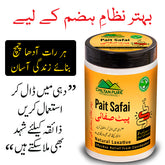

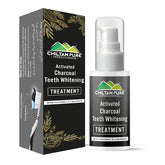

![Red Onion Oil 🧅 Reduces Hair Fall & Accelerates Hair Regrowth [پیاز کا تیل].. Trending.... 🔥 - ChiltanPure](http://chiltanpure.com/cdn/shop/products/red-onion-oil-reduces-hair-fall-amp-accelerates-hair-regrowth-piaz-ka-til-trending-394813_165x.jpg?v=1707464619)
![Red Onion Oil 🧅 Reduces Hair Fall & Accelerates Hair Regrowth [پیاز کا تیل].. Trending.... 🔥 - ChiltanPure](http://chiltanpure.com/cdn/shop/products/red-onion-oil-reduces-hair-fall-amp-accelerates-hair-regrowth-piaz-ka-til-trending-329640_165x.jpg?v=1708127491)
